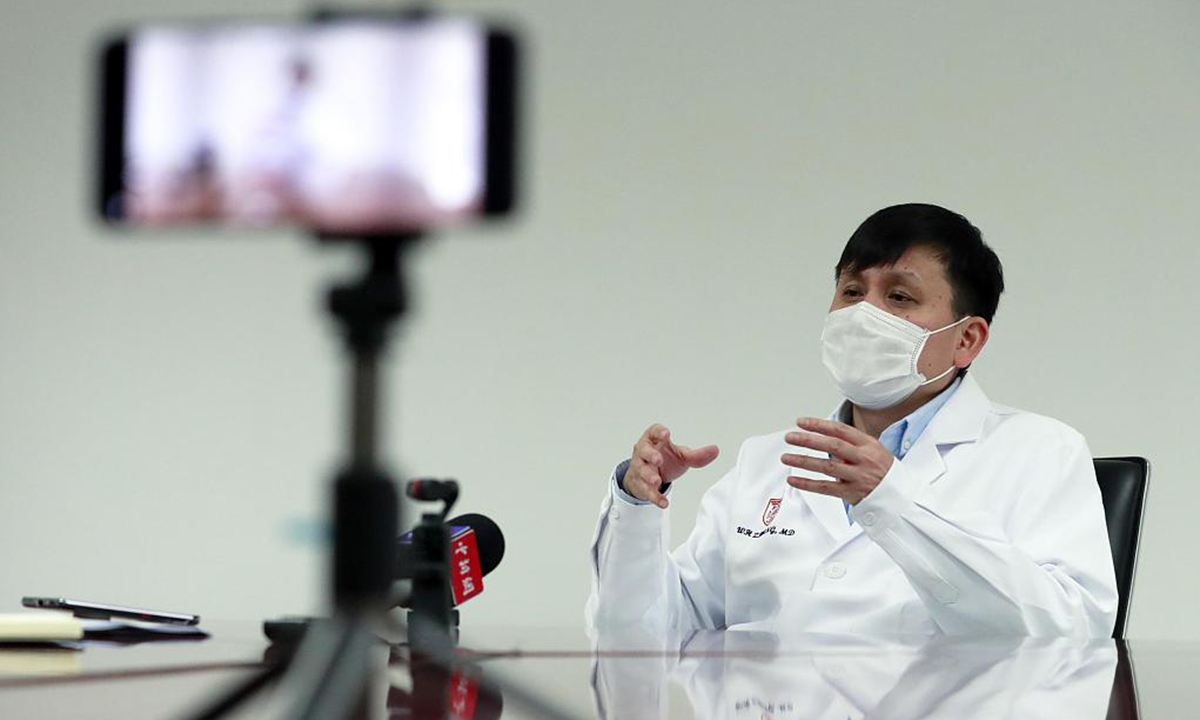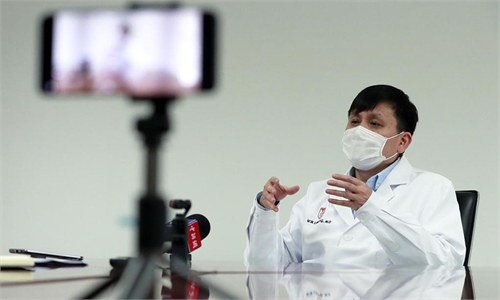Fudan University whisks off plagiarism accusation against 'China's Fauci,' says dissertation does not constitute academic misconduct

Zhang Wenhong. Photo: VCG
Fudan University has concluded, after investigation, that doctorate dissertation of Zhang Wenhong, a top infectious disease expert, does not make up as academic misconduct, whisking off online accusation of the experts' 20-year-old paper.
Although some parts of the doctorate paper of Zhang, which was writen in 2000, did not follow academic standard, it does not affect its scientific achievements, nor does it constitute as academic misconduct, Fudan University announced on Monday.
Fudan launched an investigation on Zhang's paper on August 15, after some netizens took to China's Twitter-like platform Sina Weibo saying that Zhang's doctorate paper is suspected of academic fraud. The netizens said Zhang cited a paper by Huang Hainan, from Qilu Institute of Technology, which was published in the Chinese Journal of Tuberculosis and Respiratory Diseases in 1998, without quotes, notes, or an acknowledgement.
Media platforms pointed out by careful comparison of the two articles that the overlapping part concentrated mainly in literature review part, which consists about 3,300 words. Zhang's 95-page doctorate paper, accounts roughly 70,000 words.
The hashtag "Zhang Wenhong's paper doesn't make up as academic misconduct" was soon trending on Sina Weibo, with more than 280 million reads within less than two hours. Zhang is a leading infectious disease expert in Shanghai who is also dubbed as "China's Fauci."
Before Zhang was mired in the plagiarism controversy, he was attacked by some netizens after his "coexist with coronavirus in the long run" remarks were misinterpreted and sparked debate about China's anti-epidemic strategy.
Zhang said on Sina Weibo post on July 29 in response to the COVID-19 flare up in Nanjing, that the "world needs to learn to coexist with the virus."
The remarks soon sparked debates after some Chinese netizens, as well as foreign media outlets, misinterpreted Zhang's opinion as a proposal for China to depart from its current "zero tolerance" strategy, which has proved successful as it has timely reduced viral contagion and helped the economy to quickly rebound.
The criticism against Zhang further escalated after Gao Qiang, China's former health minister, published an article advocating for the continuation of stringent COVID-19 prevention policies and dismissed ideas of a laissez-faire attitude by abandoning the harsh epidemic control measures, as some Western countries did.
Yet, an official from China's Center for Disease Control and Prevention, who requested anonymity, told the Global Times that "there is no fundamental dispute among officials and experts on China's model of fighting the epidemic, as saying to 'coexistence with the virus' shouldn't be interpreted out of context, given the characteristics of the virus such as variants and transmissibility."
Before Zhang, a similar view was expressed by numerous experts, including China's top epidemiologist Zhong Nanshan, Chinese Center of Disease Control Director Gao Fu, and renowned Chinese respiratory specialist Wang Chen.
In a move to clear off misinterpretation, Zhang wrote a long post on Sina Weibo on Wednesday night, saying that China still faces great challenges from COVID-19 "but we must have steadfast faith. Our country's current anti-epidemic strategy is what suits us the best. Only the one who wears the shoes knows if the shoes fit."
Global Times

